Heidegger's Tarnished Legacy

Interview by Richard Marshall

'Heidegger was clearly vexed following Being and Time that people didn’t quite grasp that he wasn’t trying to be an existentialist. His interest was solely the question concerning the meaning of being. He himself is adamant that that remained his one and only question. He never stopped asking it or pursuing it.'
'Heidegger was conservative, right wing, anti-communist, anti-democratic, anti-cosmopolitan, antisemitic, fiercely nationalistic, provincialist – and I think he believed that National Socialism was a movement that represented his interests.
'It is somewhat artificial to discuss Being and Time in terms of subjectivity and intersubjectivity. Heidegger is not really looking to deal with these issues explicitly in the way that Husserl did, or that Sartre and Levinas did for that matter. Heidegger’s existential analysis is a means to an end of sorts – and he is not really interested in developing a fully-fledged account of the social nature of existence.'
'I think that if one reads some of the remarks that he does make about the Holocaust and the death camps in the late 1940s in the context of the lectures they are taken from (and the subsequent essay he publishes) – then one can see that he was trying to think about the Holocaust in the context of his thinking on technology.'
'What they were reacting to, in my view, was a familiar ‘odour’ in some of Heidegger’s rhetoric. And, the person to blame here is not Adorno, or Habermas, or anyone else who is offended by the stench of that rhetoric. The culprit is Heidegger. Heidegger is responsible for all of this confusion. He’s not a saint, or some misunderstood martyr. He wilfully tried to find a way to link some of the most extraordinary philosophical insights of the twentieth century to the rhetoric of National Socialism for a period of time. He wove that rhetoric into the tapestry of his thought, and he blemished it in the process.'
'To simply refuse to acknowledge the extraordinary influence that Heidegger has exercised on some of the most important intellectuals of the last 90 years or so seems perversely and wilfully ignorant to my mind.'
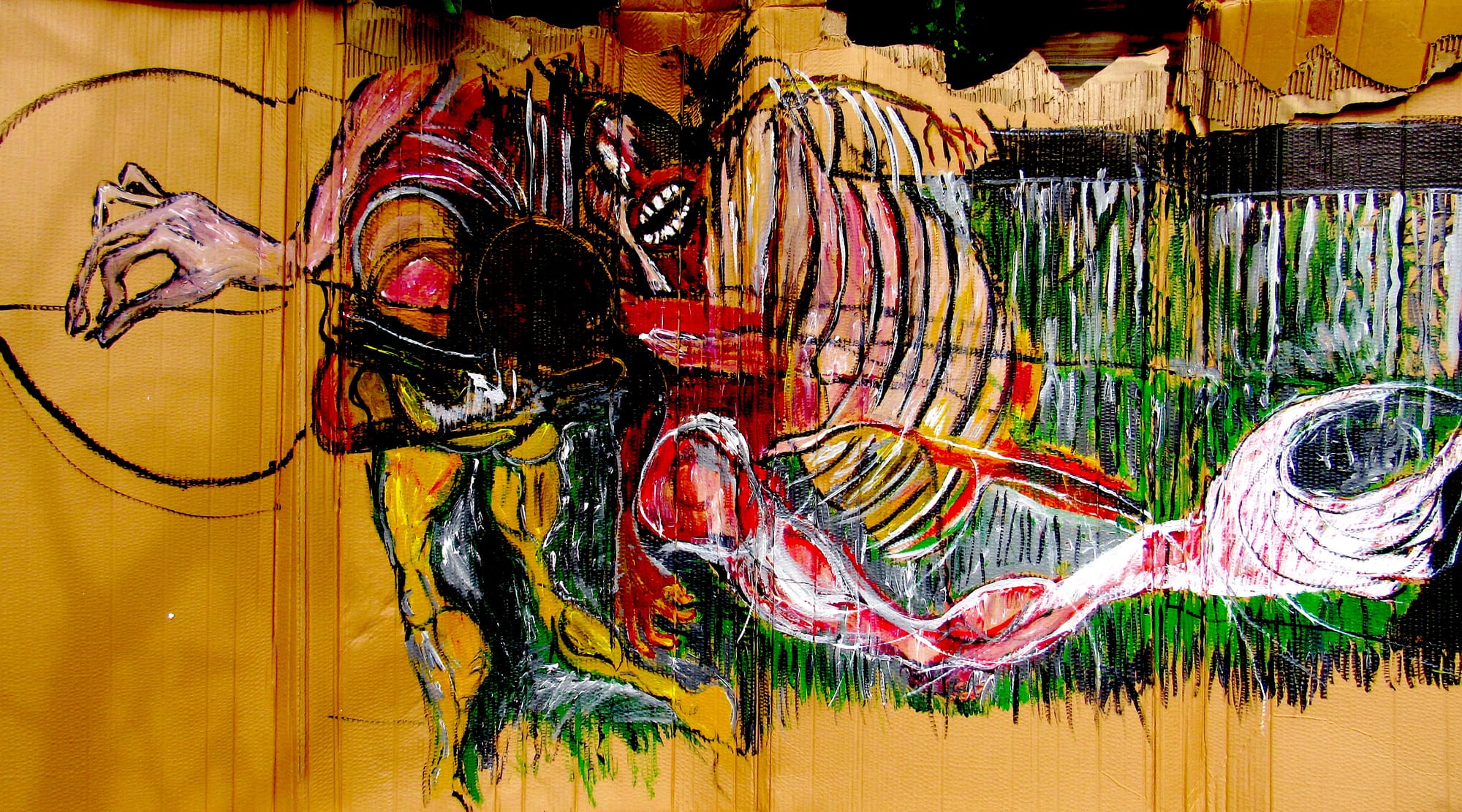
Mahon O’Brien is concerned with issues in phenomenology, in particular, the work of Martin Heidegger. Here he discusses reactions to Heidegger's Naziism, the link between his politics and his philosophy, his anti-semitism, whether there are breaks and ruptures in Heidegger's thinking, the meaning of Being as Heidegger's single philosophical concern, how the question 'why is there something rather than nothing?' connects with politics, the idea of authenticity, whether Being and Time contains politics, subjectivity and intersubjectivity, Dasein, technology and the Holocaust, whether Heidegger is just reheated Spengler and Junger, and what Heidegger's achievements are.
3:16: What made you become a philosopher?
Mahon O'Brian: My parents were not academics but there was always a strong emphasis on the importance of books and learning when I was growing up. There was no pretentiousness or snobbishness about books or literature, but I was always encouraged to read books that would challenge me to some extent. Both of my parents were opinionated and well-read and encouraged lively debates and discussions on all manner of things. I do remember being hugely affected by the exposure to Catholicism at primary school. I suppose the elaborate accounts of Hell, the Devil, the crucifixion, all left their mark. I began to think a lot about death, eternity, time and religion from quite a young age. I can’t say that it made for the nicest playground of the imagination and I was quite troubled by some of these things.
By the time I was a teenager, I had become deeply sceptical of anything to do with religion while remaining fascinated and terrified by death. Somehow, and I don’t really know how or why this started, but I became obsessed with poetry during my teens and I seemed to spend most of my spare time reading poetry or writing it (rather poorly I might add). When I did go to university, it was, to my mind, just a stepping-stone on the way to becoming a poet. After one semester of an Arts degree at University College Cork, I realised that studying English literature was not really what I hoped it would be. Instead, I had become totally infatuated with philosophy. In philosophy lectures and seminars I felt completely at ease and at home. I don’t know that I ever really expected to be working as a lecturer in a philosophy department, publishing books and articles and giving papers at conferences. But I knew immediately that philosophy was something that I was suited to. I had an instant aptitude for it and found almost everything I studied in philosophy interesting.

3:16: You’re drawn to the ‘scandal’ of Heidegger. Why do you think that reactions to Heidegger’s Nazism have been unhelpful for trying to understand his philosophy, Nazism and history?
MO: I still remember encountering Heidegger for the first time as an undergraduate in Cork in the late 1990s. We spent an entire semester reading “The Question Concerning Technology” line by line with Professor Brendan O’Mahony. I didn’t know Brendan particularly well at the time. He was Vice-President of the University, so he wasn’t really around the department much and he wasn’t teaching on any of the modules I had taken in my first two years. But this one module was to have an enormous impact on my intellectual development. I can’t say that I’ve ever again experienced the sheer spine-tingling excitement of my first forays into that essay. Brendan was a very compelling and charismatic figure in his own right and I’m sure that had something to do with it. I looked forward to his lectures each week like no others. I decided that I would like to write my MA dissertation on Heidegger having studied some of his work again in the first year of my MA. It was really only after a couple of years of reading Heidegger that I began to learn anything about his involvement with National Socialism.I took solace, however,in the reassuring attitudes of certain Heideggerians who had been routinely scoffing at the allegations concerning his Nazism and antisemitism for decades. I was convinced that figures like Wolin and Farias were simply on some kind of anti-Heidegger crusade (I still think that) and that what is often referred to now as the ‘Official Story’ remained plausible. After a while, I found it difficult to ignore the yawning gaps in the ‘Official Story’.
It is remarkable to me now to see how some students and scholars still react to details of Heidegger’s commitment to Nazism and his antisemitism today. Not too long ago, someone shared (on social media) a review of one of the volumes of The Black Notebooks that I had written for a popular magazine. To my surprise it immediately provoked hostility, even, in one case, from a reasonably well-known scholar. The same scholar declared, again, even after everything that has come to light in the last four or five years, that “Heidegger was not a Nazi”. Others resorted to a slightly more subtle strategy of denial which I will elaborate on below. That on its own is a snapshot of how deep this problem goes and how difficult it has been and remains to sort through what is, in my view, the worst philosophical scandal of the 20thcentury. The drip feeding of worrisome texts over an agonizingly protracted period certainly hasn’t helped. However, it is Heidegger himself who must take the lion’s share of the responsibility. He lied, repeatedly, about the extent of his Nazi involvement and sympathies and was, at best, a closet antisemite who traded in racist language when it suited him and trotted out a range of rather hackneyed racial stereotypes in some of his private seminars and in his private notebooks. He wasn’t transparent about any of this. Instead he peddled a story about a naïve and unfortunate man, who was unwittingly duped into a brief association with Nazism and quickly saw the error of his ways before renouncing the movement and becoming one of its most ardent and outspoken critics. As one begins to trawl through the legacy which he himself left behind and in some cases wanted to make public posthumously,it is hard to understand what he thought people would make of his mendacity. One possibility is that he might have believed that, by now, he would have been vindicated and that we would all understand why it was that he believed in the “inner truth and greatness” of National Socialism.
I have tried to say something reasonably measured and honest about the Heidegger controversy in Heidegger History and the Holocaust. I have received a lot of support and the work seems to have been well received by a lot of people. I’ve also been on the receiving end of some very nasty and abusive reviews and a number of Heideggerians have spoken very disparagingly about my work in some online forums. What I find bizarre is that the same people often don’t really read my work – they just make a snap judgment about which ‘side’ I’m on and then toe the party line. The fact that I’m not gung-ho for either ‘side’ means that I’m seen by both sides as an ‘enemy’ at times.
One issue that makes life difficult when it comes to trying to assess a figure like Heidegger is the myth-making that goes on. There is a cult like devotion to the ‘Meister’ which I find deeply problematic and which inspires a rather hopelessly uncritical attitude. For some, to be a Heidegger scholar means accepting as an article of faith that he was not only a brilliant and original thinker but the most exalted of human beings with a character and temperament that was beyond reproach. This kind of hero worship may not matter when it comes to some important figures from history – or at least, it may not matter as much. However, in the case of Heidegger, I think that this is an obstacle to seeing clearly some very serious philosophical questions that we must put to Heidegger and ourselves.
Part of what I hoped to do in my introduction to Heidegger’s life and thought (which is just out) is write a book for people who may be just starting out with Heidegger – just as I was over twenty years ago now – and to try to offer an unflinching, unvarnished portrait of the human being while unfolding some of the key themes and ideas of his philosophy. If we can demolish the Heidegger ‘monument’ and get away from the hero-worship then perhaps people will not automatically call ‘bullshit’ on his entire intellectual legacy when faced with various strategies of denial. There is a danger of actively alienating prospective readers of Heidegger and leaving the final assessment in the hands of figures like Wolin and Faye who are only too willing to throw the baby out with the bathwater.

3:16: On Heidegger and his disturbing political views – the issue for you is not just that he was a Nazi but why a great philosopher could insist that the motivation for his Nazism lay in the essence of his philosophy. What do you say to those who say that if his philosophy is intimately connected with his politics then his philosophy can’t be accepted?
MO: I think one has to, in the first instance, distinguish between legitimate concerns and politically motivated ones. The second set of concerns divide up again into at least two categories, it seems to me. There are firstly those like Wolin and Faye who are willing to do whatever it takes to extirpate Heidegger from the canon. In both cases, I think that there is a kind of Grand Inquisitorial zeal to their presentations and writings which often leads them rather blindly into precipitous attempts to dismiss Heidegger’s work or to conflate all of his thought with Nazism. Heidegger was a Nazi – and as far as they are concerned, they don’t really need to do the genuine philosophical work required to show what the relationship between his political and philosophical views might be. He said that there was a relationship, therefore Being and Timealong with some of the most important philosophical ideas and writings of the last 100 years or so can simply be dismissed as so much Nazi propaganda. There are also philosophers who seem rather militantly disposed to what they take to be an errant approach to philosophical inquiry to begin with. In public discussions and online forums, I’ve seen them adopt something like the strategy of Wolin and Faye – but without having taken the trouble to read Heidegger’s primary texts. Instead they recycle some of the most offensive passages unearthed by the likes of Faye or from the Black Notebooks and hope that people will finally come to their senses and consign Heidegger’s work to the flames. The interesting thing to note here is that these kinds of critics appear to be willing to jump on any type of controversy to exploit what they see as their opponent’s weakness. When the first English translation of Heidegger’s notoriously difficult Beiträge zur Philosophie was published back in 1999, we saw a good example of this when Simon Blackburn, adducing some of the more unfortunate linguistic acrobatics of the translators, called for philosophers en masse to finally put a stake through the heart of this Heideggerian nonsense.
A further challenge for someone like me, who wants to try and face up to Heidegger’s Nazism and deal openly with the fact that he himself insisted that the motivation for his political commitments and activities lay in key elements of his philosophy, is that one has to contend as well with a number of Heideggerians who refuse to acknowledge that there is a genuine problem here. Again, we can divide these types of Heideggerians up into different categories. There are the ‘flat Earthist’ types (they are not as common anymore, but they do exist); they insist that Heidegger was neither a Nazi nor an antisemite and are quick to try and suppress any discussion of this issue. Then there are Heideggerians who grudgingly acknowledge that the former attitude is unreasonable but that want to pretend that the links between the philosophy and the politics are negligible and that, besides, we’ve heard all of this before, the matter has been dealt with and it’s time to move on. This is a slightly more sophisticated strategy of denial – there is a kind of implicit appeal to authority designed to suggest to someone like me that one cannot be a serious and/or sufficiently sophisticated reader of Heidegger if one thinks that this is something that is even worth a fraction of the time and effort devoted to it.
There are also intellectuals who were, at one time, admirers of Heidegger, but now are keen to jump on the Heidegger bashing bandwagon. They know the corpus quite well and thus will seize every opportunity possible to rend the garments or exorcise another Nazi spectre out of some previously unexplored corner of Heidegger’s work. The problem for these kinds of critics, it seems to me, is that they paint themselves into something of a corner in the end, in that they want to maintain that Heidegger is an important philosopher and someone that has had a major positive influence on philosophy – but they haven’t actually left any of his corpus unsullied in their efforts to get on the right side of the lynching mob.
I do take seriously Heidegger’s claim that some of his key philosophical ideas provided the basis for his political commitments. I have tried to understand how he might have conceived of those connections and to trace some of his efforts to develop those lines of thought. I don’t think that this renders his philosophy irredeemable but neither do I think that one can afford to ignore just how dangerous his enmity to Modernity is. I don’t know that enough of Heidegger’s readers fully appreciate the fact that some of the rudiments of his critique of Modernity are pretty repugnant – not least the valorisation of the German language and culture (some of which trades in pretty stock antisemitic tropes dating back to the late 1700s). That does not mean that his attempts to overcome the metaphysics of presence, his concerns with the essence of modern technology and his insights into a tradition’s failure to adequately come to terms with what the word ‘being’ means are no longer important. Heidegger remains, for me, one of the most important philosophers of the twentieth century. I think one of the great tragedies of twentieth century philosophy is that things became so politicized and ideology took such a hold in terms of the split between analytic and continental philosophy that some of the most talented thinkers of the last fifty to sixty years never bothered to take the time to engage with Heidegger properly. Indeed, I sometimes think of the history of twentieth century philosophy as a history of missed opportunities.
3:16: And how do you recommend we assess his anti-Semitism?
MO: I can’t say that I’m all that eager to say too much about this again given the way one tends to be immediately tarred one way or another in the identity politics that govern this and many other aspects of the Heidegger controversy. My sense is that there are very few important Heidegger scholars anymore who would deny that he was an antisemite. There are some zealots out there, but not many whose work is taken seriously. Again, there are other Heidegger scholars who employ the stratagem I glossed above; they insist that we know all of this already, it’s nothing new, that his antisemitism was of a rather ‘mild’ variety and is unrelated to the core of his philosophical vision. I have to confess that this is a view that I was attracted to myself for a while; but I suppose that at some point I came to see that it was, in itself, a form of denial, a kind of bad faith if you like. It is, after all, Heidegger who repeatedly tries to find ways to connect his views concerning the Jews, Jewishness and Judaism to his core philosophical ideas.
It is Heidegger himself who insists to one of his former Jewish students, Karl Löwith, that Löwith was entirely right in his assessment of Heidegger’s reasons for committing himself to the Nazi party. That is to say, that Heidegger believed that his own vision of National Socialism for Germany was something which was consonant with some of the key elements of his philosophy. What I just cannot understand here is why some Heideggerians become so incensed when anyone tries to examine these issues as though Heidegger is some innocent victim in all of this. It is Heidegger himself who wrote, said and did all of the things that require an explanation at the very least. Where is their anger at Heidegger for agreeing to be the obscenely overzealous Nazi rector of Freiburg University? Why not hold him to account for writing private, incriminating letters against fellow academics – citing their relationship to Jews as something to count against them? Why is it anyone but Heidegger’s fault that he hero-worshipped Hitler in public speeches and addresses, that in private seminars he was willing to say that semitic nomads could not be part of the new German nation? Where is their outrage and disgust at the fact that in notebooks that he hoped to have published posthumously we find him trading in some fairly repugnant antisemitic stereotypes and trying to weave these into the theoretical tapestry of a philosophy that many people count as possibly the most important of the twentieth century?
Admittedly, there was a fair amount of sensationalism and over-reaction to the publication of Heidegger’s Black Notebooks. The Heidegger hardliners were forced to retreat to the trenches for a period of time and there was a good deal of crowing and triumphalism from the likes of Faye and Wolin. I had already finished a draft of Heidegger, History and the Holocaust before the notebooks appeared and had to delay publication in order to read through the initial three volumes. What surprised me most at the time was that it took the publication of these volumes to finally force many people to admit that there was a problem. I had written a manuscript on these issues convinced that the evidence was already there. Now that the dust has settled, to some extent, and that the alarmist prognosticators predicting the demise of Heidegger studies have becalmed themselves, there are a handful of Heidegger scholars who are trying to discredit any further discussion of the political controversy – this time suggesting that the notebooks only contain a handful of troubling remarks and that we have raked through the coals sufficiently and that it’s time to get back to the ‘real’ work. I am encouraged to see that many prominent Heidegger scholars who, hitherto, steered clear of the political controversy don’t appear to find this approach to be either convincing or legitimate. I don’t know that I would be inclined to go as far as Peter Trawny does in some of his recent work; but to his credit – he is trying to draw attention to the fact that Heidegger wants to connect his history of ‘beyng’ and the attempt to overcome the Western metaphysical tradition to some rather disturbing views, and he trots out quite a few fairly hackneyed antisemitic tropes as part of these theoretical musings.That is simply not something that can be dismissed lightly.

3:16: Your approach seems to reject the idea that Heidegger’s thought is not continuous, not subject to breaks and ruptures as many commentators have thought? What’s the usual ‘breaks and ruptures’ commentary on Heidegger and who are the philosophers connected with that reading?
MO: For a long time I tended to use the notion of the ‘turn’ (‘dieKehre’) as a shorthand to mark a new stage in Heidegger’s career. For the most part, I just took it as a given that there was this shift or change in Heidegger’s thinking and that sometime after Being and Time he gave up on that project in favour of this ‘new’ type of thinking.The literature was saturated with that kind of usage of the term (‘turn’) and I suppose I just adopted it somewhat uncritically; after all, it was taken as a given and was used and relied upon by people whose work I admired and who I had learned a great deal from as a student. It was an easy thing to trot out to distinguish the later Heidegger from the earlier or to refer to a change in style that we see emerge over the course of Heidegger’s career. However, after a while I began to notice a number of things which unsettled the complacency that I myself was guilty of concerning this idea.
Firstly, I noticed that there were a series of presuppositions that went with this notion of a ‘turn’ which didn’t tally with what I found when reading Heidegger. Second – there was the fact that these presuppositions didn’t seem to chime with the repeated references in Heidegger’s self-interpretations to the continuing relevance of Being and Time (and the question that motivated that text) to his lifelong project. What clinched it for me was re-reading Heidegger’s “Letter to Richardson”, which the latter used as a foreword to his own masterpiece. It just seems so obvious here that Heidegger is rejecting many of the typical ways that people try to compartmentalise his thinking and that their basic assumptions concerning a change in his thinking are not even remotely close to what he means by this notion of the ‘turn’. In terms of the specific commentators whose work is guilty of what I take to be a misreading of Heidegger on this – I wouldn’t like to single anyone out. I think that there are plenty of Heidegger scholars out there who have nuanced views on this and who would resist the robustness of my own interpretation. Nevertheless, I will say that it has always amazed me that some commentators, as part of their compartmentalising of Heidegger’s thought, are so quick to offer quite a reductive reading of what Heidegger, to the end of his life, rightly judged to be his most important work, namely, Being and Time. The same commentators dismiss this work in particular for its excessive subjectivism, Husserlian transcendental subjectivity, its overblown humanism inter alia. I find many of those kinds of characterisations to be excessively reductive.
3:16: So what do you take to be Heidegger’s one concern in his philosophy and why is the interplay between being and beings so important in all his work?
MO: I think Heidegger’s own words are probably best here
"The question concerning the “meaning” [of being], i.e., in accordance with the elucidation in Being and Time, the question concerning grounding the domain of projecting-open—and then, the question of the truth of being—is and remains my question, and is my one and only question; for this question concerns what is most sole and unique. In the age of total lack of questioning anything, it is sufficient as a start to inquire into the question of all questions."
Heidegger was clearly vexed following Being and Time that people didn’t quite grasp that he wasn’t trying to be an existentialist. His interest was solely the question concerning the meaning of being. He himself is adamant that that remained his one and only question. He never stopped asking it or pursuing it. That alone is enough to make one slightly suspicious of the ‘discontinuity’ narrative and concomitant interpretive approach to Heidegger interpretation and scholarship. In terms of the being question – Heidegger is interested in what we actually mean by ‘being’, noting that we are not talking about ‘a being’ or ‘thing’. The word interplay in your question is an important one since I think what Heidegger wanted us to see was the constant interplay between presence and absence in our experience and how we needed to wake up to the way we privilege presence (that is, constant, static presence) in terms of how we describe or represent our experience of and existence in the world around us and the meaningful, historical context within which that existence takes place. So, I would probably substitute “presence and absence” for “being and beings” in the wording of your question. I think Heidegger is interested in the role that absence (or nothingness) plays in any experience we have – the constant interplay of presence and absence in even our most mundane experiences.
3:16: So how does Lebniz’s question,– ‘why is there something rather than nothing’ - which Heidegger takes to be the key metaphysical question manage to get connected to any kind of politics and any kind of historicism?
MO: In short, it doesn’t. However, Heidegger probes further into that question and in particular tries to show that we don’t have an adequate sense of being and the role that nothingness or absence plays in what being actually means. And, as part of his attempt to investigate this question (the question concerning the meaning of being), he sets about trying to overcome a metaphysics of presence. For a period of time, Heidegger believed that there was a political and spiritual awakening in Germany which could allow for the emergence of a new historical community. This imagined community, in turn, would be the site for the realisation of his politico-philosophical vision and an age that existed outside of or beyond the current epoch of the metaphysics of presence.
3:16: You say you were drawn to Heidegger initially through your fascination with the notion of authenticity. What made you conclude that authenticity was not an unwitting or hidden existentialist ethic nor a solipsism or part of some kind of anthropocentric metaphysics either?
MO: I suppose some of these questions intersect to the extent that, if one reads Being and Time in the way that I do, then it is very difficult to see it as solipsistic or anthropocentric in any straightforward or reductive way (that is not to say that his account is unproblematic I'll say something about this later). I think one of the problems here has been a failure at times to put Heidegger’s Dasein analysis and the subsequentaccount of authenticity into context. The discussion of angst in Being and Time, for example, is very clearly not an attempt to meditate on the human condition or contribute to philosophical anthropology or psychology. I try to make this clear in a recent piece for Christos Hadjioannou’s volume of essays on the notion of affect in Heidegger. Heidegger very carefully explains why his inquiry into the question concerning the meaning of being should begin with that being that already has some sense of being operative in its ordinary everydayness to begin with.
We don’t have to begin from some arbitrary or Archimedean standpoint on this issue – we already have a vague understanding of being to work with and this is where Heidegger thinks we should begin. So, the Dasein analysis is to this end; he wants to comb through the available evidence to see what these quotidian clues might yield in an attempt to fasten on what the notion of being might mean. This in turn will pave the way for a new or fundamental ontology and an attempt to get beyond or overcome themetaphysics of presence. Seen this way, one interprets Being and Time as the beginning of a way into a question that he never abandons – he is not trying to contribute to existentialism or anthropology in that text. This also explains why Heidegger so tirelessly insists to the end of his life that he was not trying to offer anything like that in Being and Time and constantly bemoans and fulminates against those kinds of readings of his work.
3:16: How did Heidegger try and fuse his ideas regarding authenticity in Being and Time with his political aspirations, and were his attempts successful?
MO: This is related to your earlier question and, again, it’s a difficult question and the answer could quickly become unwieldy. My own shorthand for this is that Heidegger didn’t expressly set out to write anything even remotely political in Being and Time. He had been working on the philosophical problems which motivated that book for almost a decade before its publication. However, in the 1930s, Heidegger is swept up in a fever of excitement at what he takes to be the great potential within National Socialism. Heidegger was conservative, right wing, anti-communist, anti-democratic, anti-cosmopolitan, antisemitic, fiercely nationalistic, provincialist – and I think he believed that National Socialism was a movement that represented his interests. For a period of time, then, one finds Heidegger trying to jury-rig a kind of political philosophy – welding together some of the nuts and bolts of his own philosophy and the rhetoric of National Socialism. Granted – there are elements of Being and Time, for example, that lend themselves a bit more readily to this attempt than others. Section 74 of Being and Time has come in for renewed scrutiny since Heidegger appears to be outlining something like the ideal or authentic community here and in the 1930s his political rhetoric is immediately hitched on to this notion of an authentic community, the authentic Dasein of a people. That is not to say that §74 was conceived with something like Nazism in mind – but it certainly lent itself to what he attempted in the early 1930s quite readily. Having said as much, it could also be put in the service of a conception of any historical community regardless of ethnic or political orientation – so the same section does not itself necessitate the kind of appropriation that we find in Heidegger in the 1930s.
3:16: How does his discussion of subjectivity and intersubjectivity fit in to your understanding of what he’s up to in Being and Time?
MO: It is somewhat artificial to discuss Being and Time in terms of subjectivity and intersubjectivity. Heidegger is not really looking to deal with these issues explicitly in the way that Husserl did, or that Sartre and Levinas did for that matter. Heidegger’s existential analysis is a means to an end of sorts – and he is not really interested in developing a fully-fledged account of the social nature of existence. True to his word, he is on the hunt for clues as to what sort of sense of being we already operate with in our day to day lives and this involves examining the nature and character of our ordinary lives which he determines to be thoroughly social.
3:16: You say that the same difficulties which appear to hamstring the early account of authenticity further affect the notion of an authentic Dasein of a people later don’t you? What do you mean by that?
MO: Again, this is a somewhat technical story that could easily get out of hand, so I’ll confine myself to a very brief summary. One of the issues that can seem to complicate Heidegger’s account of Dasein as Mitsein in Being and Timeis the way he characterises Dasein as an authentic individual in other sections. I have written about this in my last two monographs and some articles as well. On the one hand, I think one can tell a plausible story such that Heidegger does not have to be understood as reverting to some kind of solipsism in his account of authentic Dasein. Having said as much – he does occasionally muddy the waters here and seems (in places) to privilege the notion of the isolated Dasein. He certainly equivocates on this. It is possible to reconstruct a convincing account in a way that remains faithful to his basic position; however, I won’t get into what is a fairly tedious, technical discussion of that here.
The notion of the individual, authentic Dasein seems to be recast as a Dasein of the people in the 1930s and he was already paving the way for this, I believe, with his discussion of community in §74 of Being and Time. And, worryingly, he repeats some of the same problematic moves at this level which complicated his account in Being and Time. That is, when authentic Dasein is ‘writ large’ as the authentic Dasein of a people (i.e. the German people) – he seems to want to privilege this isolated community and suggest that they must be resolute and self-contained beforethey go out and forge relationships with other nations.
3:16: Why do you say Heidegger’s meditation on technology is a philosophical confrontation with the holocaust?
MO: I understand why you’ve asked the question this way – it is related to something I have argued in the past. However, as stated, it is somewhat misleading since I don’t think that Heidegger’s philosophical confrontation with technology, which was to occupy him for almost all of his career from the 1930s onwards, was exclusively an attempt to think through the Holocaust. Rather, I think that if one reads some of the remarks that he does make about the Holocaust and the death camps in the late 1940s in the context of the lectures they are taken from (and the subsequent essay he publishes) – then one can see that he was trying to think about the Holocaust in the context of his thinking on technology. And, not only that, I do think that some of his comments on the Holocaust and the death camps have been badly misrepresented and decontextualized.
I don’t, contrary to what some of my critics have suggested, argue that Heidegger’s is the final word on the Holocaust. I don’t think that he comes even close to saying enough – not least given his own involvement with National Socialism. Notwithstanding – I do think that some of his views on this offer some very promising ways of thinking through certain features of the Holocaust. Heidegger very clearly offers something like the philosophical backdrop to the functionalist’s historical approach to the Holocaust decades before that interpretation came into vogue. I don’t think that the functionalist account is sufficient – but I do think that elements of that account are compelling.
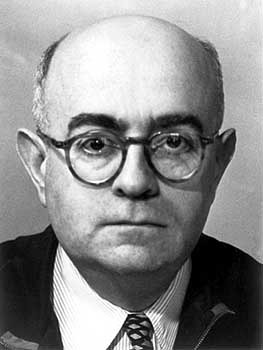
[Adorno]
3:16: Why don't you think Heidegger’s philosophy is just a rehash of the views of contemporaries like Spengler and Junger?
MO: This was initially the kind of move one finds in Adorno, although I think a more or less identical version of this criticism is more familiar to a contemporary audience because of some of Habermas’ clipped comments in later decades. It’s a rather reductive and overly simplistic move in my view. Having said that – I genuinely have a degree of sympathy for both of these thinkers when it comes to their outrage at Heidegger. And, all too often, Heideggerians (myself included) have been only too happy to dismiss their outrage as poorly formulated or untenable on technical or theoretical grounds without asking why Adorno and Habermas might have been so incensed.
Obviously, it has become slightly easier to see ‘why’ in the last few years; however, what they were reacting to, in my view, was a familiar ‘odour’ in some of Heidegger’s rhetoric. And, the person to blame here is not Adorno, or Habermas, or anyone else who is offended by the stench of that rhetoric. The culprit is Heidegger. Heidegger is responsible for all of this confusion. He’s not a saint, or some misunderstood martyr. He wilfully tried to find a way to link some of the most extraordinary philosophical insights of the twentieth century to the rhetoric of National Socialism for a period of time. He wove that rhetoric into the tapestry of his thought, and he blemished it in the process. This has led to confusion, condemnation, outrage, and controversy, but only because he traded in a rhetorical currency which was instantly recognisable to some of his contemporaries. I must say that I don’t find Adorno to be a terribly compelling interpreter of Heidegger – but to give him his due, he tried to draw attention to this quite early. Obviously, some of Heidegger’s Jewish students such as Marcuse, Löwith, Arendt, Strauss and Jonas were very distressed by Heidegger’s openly declared support for Nazism. However, I don’t know that they went to the lengths that Adorno did (in work such as The Jargon of Authenticity)to put some of Heidegger’s work on authenticity and technology into a very particular context.
3:16: As a take home, how would you summarise Heidegger’s philosophical achievements in the light of your interpretation?
MO: I was gobsmacked a while back when I read a well-known British philosopher’s list of the top ten philosophical books of the twentieth century. He listed four titles from Wittgenstein which was already a bit ludicrous. What was even more bizarre was to find the same author lamenting the fact that he could not exclude every other author with the exception of Wittgenstein. The omission of Being and Time from that list just seems ridiculous; although, to be fair, the same philosopher does not appear to be motivated by the identity politics of academics who simply refuse to acknowledge Heidegger’s importance or influence as a philosopher.
This latter posture is, in turn, indicative of a problem that has blighted academic philosophy since about the 1930s – though I think things are beginning to improve. To simply refuse to acknowledge the extraordinary influence that Heidegger has exercised on some of the most important intellectuals of the last 90 years or so seems perversely and wilfully ignorant to my mind. Thankfully, it seems that the era of such myopic partisanship in philosophy has had its day. (I should also say that there are culprits on both sides – it is certainly not one-way traffic) The preponderance of serious philosophers have never had much interest in the phony war between analytic and continental philosophy and many of the people that I work and collaborate with don’t really bother with the ‘divide’. The few remaining voices from a generation of curmudgeonly, sectarian die-hards no longer have the same clout within the profession and are gradually being replaced by more rounded and open-minded thinkers in my view.
In terms of Heidegger’s contributions to philosophy, a nice way of capturing the magnitude of his achievements is to consider Levinas’ assessment of his most famous text – Being and Time. Levinas became an ardent critic of Heidegger and was appalled by some of the German philosopher’s behaviour and views. Notwithstanding, it is a testament to Levinas’ own nobility of soul and equanimity that he insisted on the importance of Being and Time to the end of his life
I became enchanted with Heidegger and his Being and Time, and I still think very highly of it: there are only five or six books like this in the history of philosophy.[1]
I think that any philosopher that takes the time and makes the effort to read that work carefully simply has to acknowledge the staggering philosophical profundity and originality of that text. In terms of Heidegger’s influence more generally – I try to sum this up in the introduction to my most recent book:
Heidegger is, without question, one of the most important philosophers of the twentieth century and his thought has had a profound impact on the trajectory of philosophy during the second half of that century and continues to prove hugely influential for philosophers today. Contemporary continental philosophy is indelibly marked by Heidegger’s influence which has had far reaching implications for phenomenology, hermeneutics, existentialism, deconstruction, aesthetics, the history of philosophy and philosophy of technology along with having been hugely influential for literature, the arts, theology, architecture and psychoanalytic theory. The idea then that one should simply strike Heidegger’s name from the canon and ignore his work betrays a profound ignorance of the magnitude of Heidegger’s intellectual achievements, not least since it presumes that many of the most important intellectual figures from the second half of the twentieth century right through to today, who acknowledge a major intellectual debt to Heidegger, were either too blind or too stupid to notice that Heidegger’s philosophy is simply the abstruse mysticism of a charlatan or the work of a dangerous Nazi hack looking, as one commentator argues[2], to surreptitiously inscribe Nazism into the history of Western philosophy.[3]
3:16: And for the curious readers here at 3:16, are there five books you could recommend that will take us further into your philosophical world?
MO: Five books that have had a significant impact on me at some point or another are:
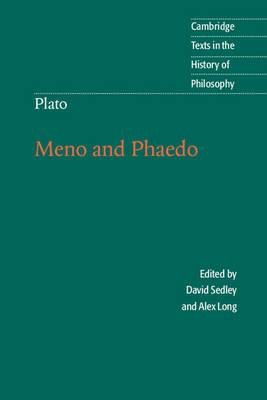
Plato. Meno
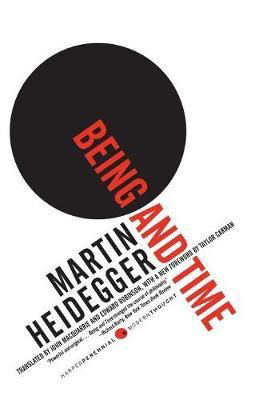
Heidegger. Being and Time

Machiavelli. The Prince
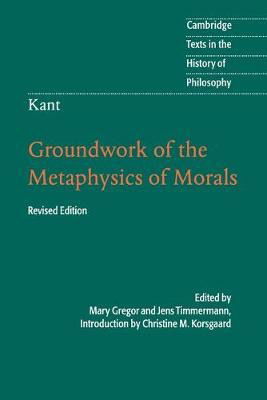
Kant. Groundwork of the Metaphysics of Morals

Nietzsche. Thus Spake Zarathustra
[1]Raoul Mortley. “Chapter I. Emmanuel Levinas” (1991). French Philosophers in Conversation, by Raoul Mortley. Paper 2. http://epublications.bond.edu.au/french_philosophers/2
[2]This is one of the central claims that Emmanuel Faye tries to defend.
[3]Mahon O’Brien. Heidegger’s Life and Thought: A Tarnished Legacy. Rowman & Littlefield, London & New York, 2019.
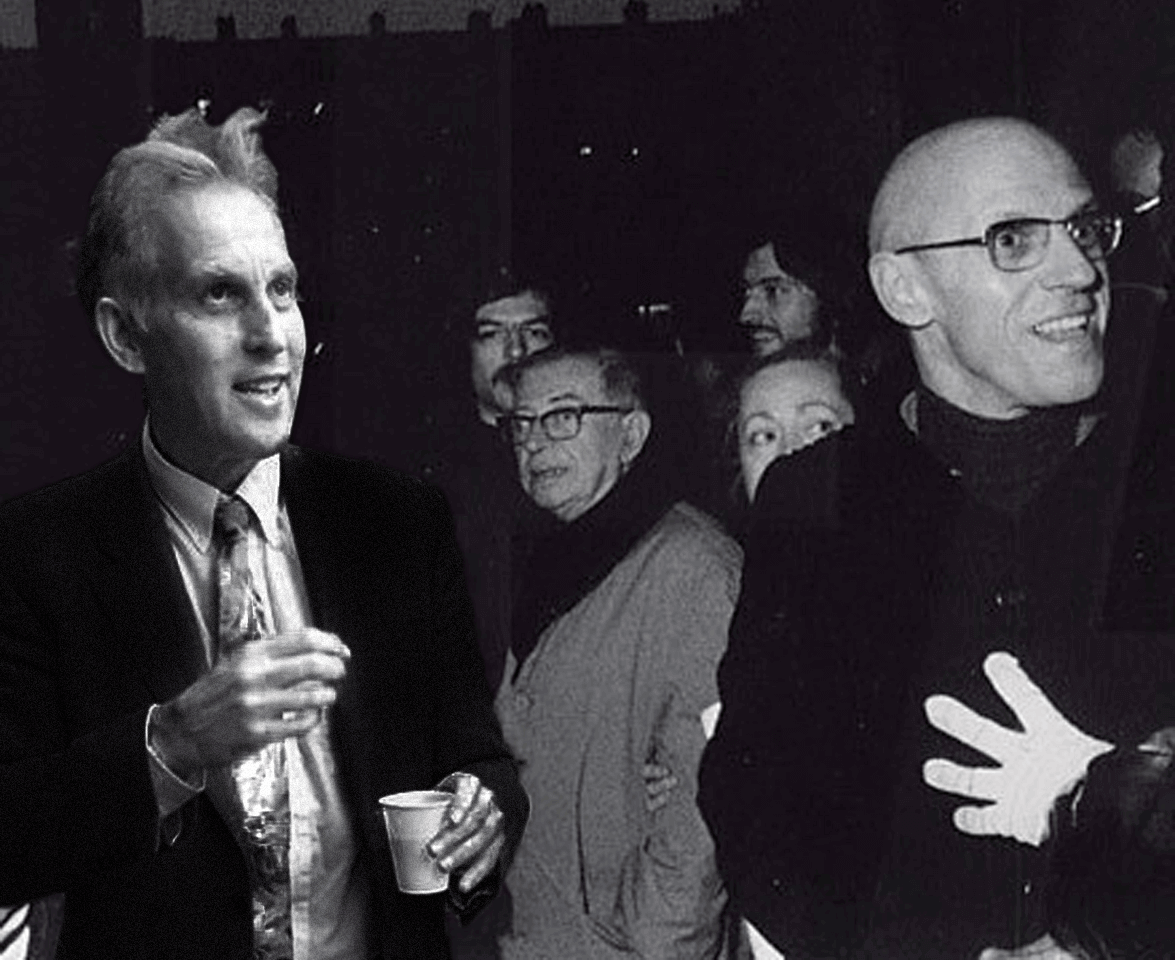
ABOUT THE INTERVIEWER
Richard Marshall is biding his time.
Buy his new book here or his first book here to keep him biding!
End Times Series: the index of interviewees